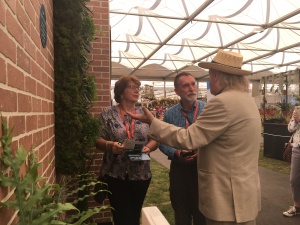 We’re happy to introduce another member of our editorial board, Antonio José Manzaneda. Antonio is based at the University of Jaén, Spain, and is a plant evolutionary ecologist whose work focusses on the evolution of complex traits with a relevant ecological function in the context of adaptation. Read more about his research below.
We’re happy to introduce another member of our editorial board, Antonio José Manzaneda. Antonio is based at the University of Jaén, Spain, and is a plant evolutionary ecologist whose work focusses on the evolution of complex traits with a relevant ecological function in the context of adaptation. Read more about his research below.
Estimados colegas, aquí abajo os pongo algunas líneas sobre las investigaciones que he venido desarrollando durante mi carrera profesional como ecólogo evolutivo. Destaco algunas de las publicaciones sobre hormigas y semillas que realicé durante mi doctorado en la Sierra de Cazorla y otros parques naturales de España, mi trabajo sobre Boechera y sus herbívoros con Tom Mitchell-Olds en las Montañas Rocosas, y también de mi trabajo con Brachypodium y el significado evolutivo y ecológico de rasgos funcionales en este complejo de especies. Espero disfrutéis y que ayude a que conozcáis un poco mejor mi trabajo.
Un saludo cordial.
Antonio
Continue reading “AE Profile: Antonio José Manzaneda”












 We’re happy to introduce another member of our editorial board, Antonio José Manzaneda. Antonio is based at the University of Jaén, Spain, and is a plant evolutionary ecologist whose work focusses on the evolution of complex traits with a relevant ecological function in the context of adaptation. Read more about his research below.
We’re happy to introduce another member of our editorial board, Antonio José Manzaneda. Antonio is based at the University of Jaén, Spain, and is a plant evolutionary ecologist whose work focusses on the evolution of complex traits with a relevant ecological function in the context of adaptation. Read more about his research below.